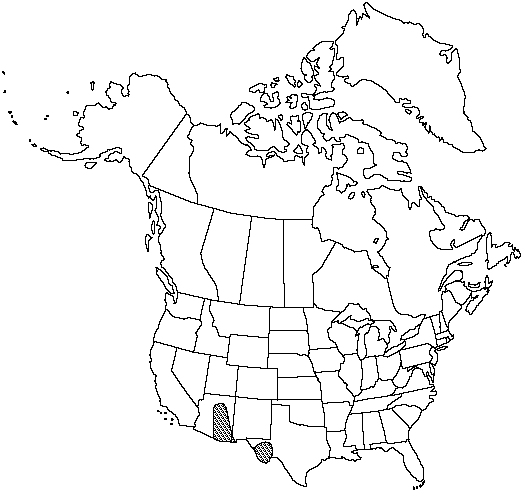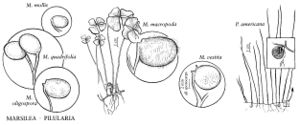Plants forming dense clones. Roots arising at nodes. Petioles 1–14 cm, sparsely erect-pilose to glabrous. Pinnae 2–17 × 1–16 mm, densely pilose abaxially, sparsely pilose adaxially. Sporocarp stalks erect, unbranched, attached at base of petiole, or rarely up to 3.8 mm above it, not hooked at apex, 1.7–6.7 mm. Sporocarps nodding or perpendicular, 2.4–5 × 2–3 mm, 1.3–1.7 mm thick, ovate in lateral view, covered with needlelike hairs with spreading tips when young but soon glabrate; raphe 0.6–1.4 mm, proximal tooth 0.2 mm, blunt, or absent, distal tooth 0.2 mm or absent. Sori 10–14.
Phenology: Sporocarps produced spring–fall (May–Oct).
Habitat: On mud and in shallow water, in ponds and marshes
Elevation: 1300–2000 m
Distribution

Ariz., Tex., Mexico, South America.
Discussion
The name Marsilea mexicana A. Braun has sometimes been misapplied to this species.
The red or brown streaks on the pinnae, reported as characteristic of Marsilea mollis by a number of authors, are found on floating leaves of nearly all species in the genus (D. M. Johnson 1986).
Selected References
None.
